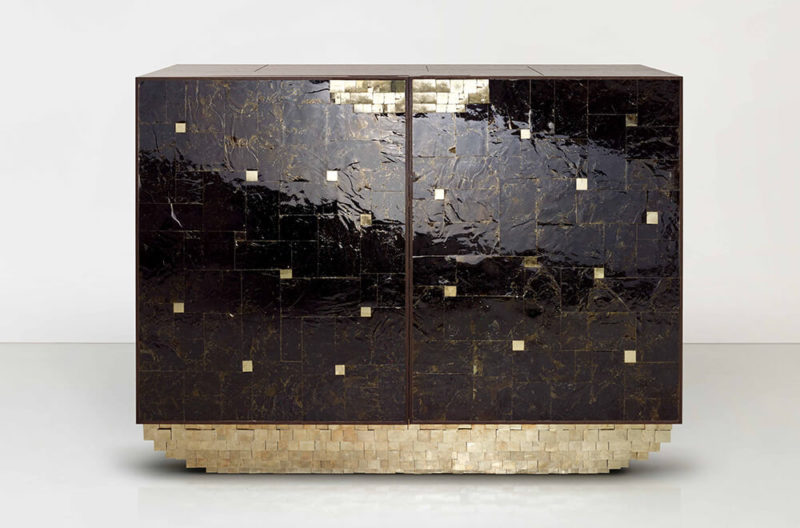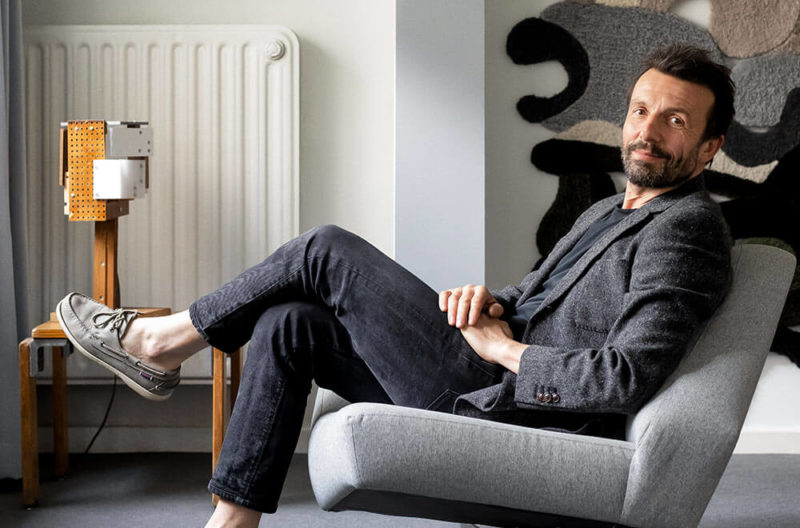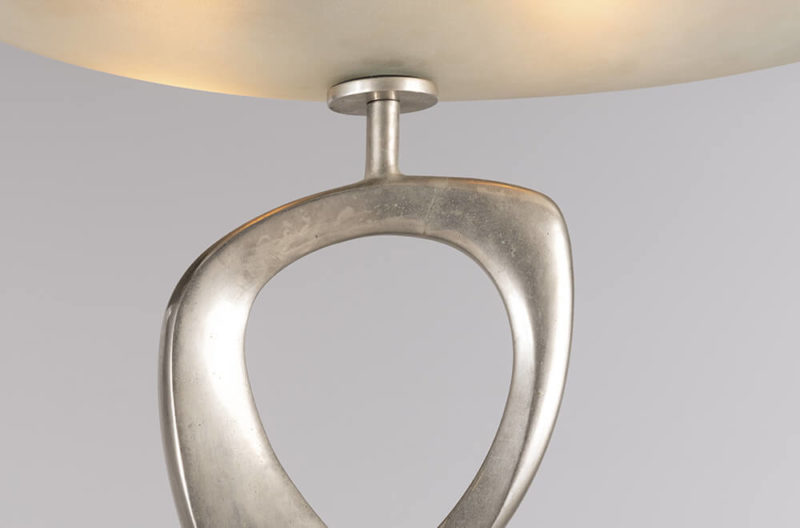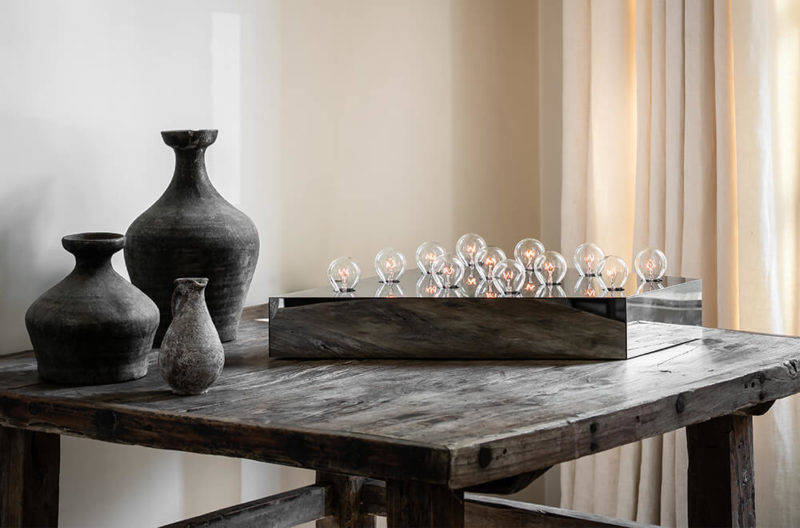Preview: PAD Paris 2022
Anna Sansom surveys the highlights – including historical works by Pierre Paulin and André Sornay, and new works from contemporary designers Caroline Corbeau and Lucie Švitorková.
Tuileries
6th-10th April 2022
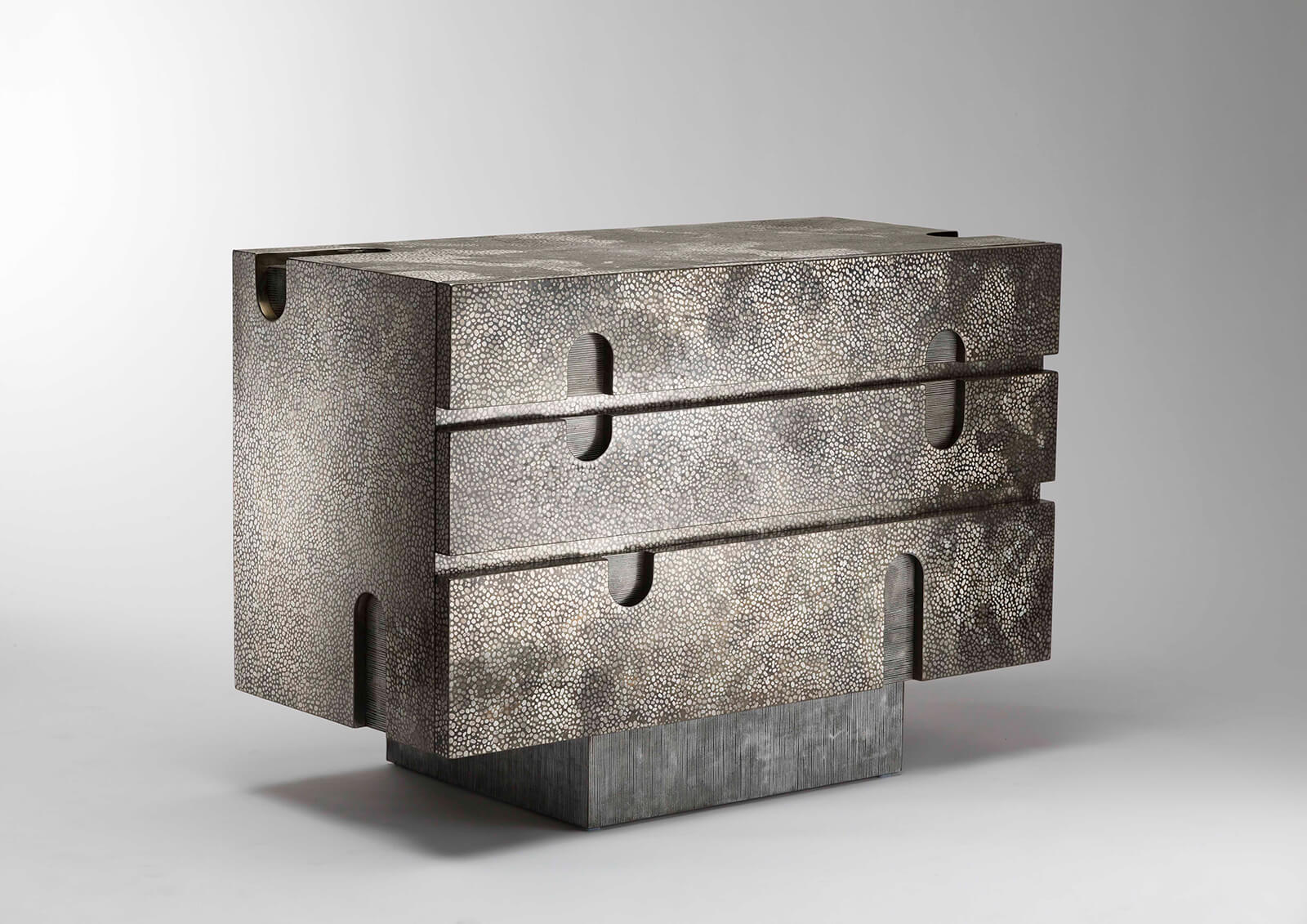
Caroline Corbeau, ‘Diapason’ chest of drawers, 2021
COURTESY: Caroline Corbeau & Galerie Mougin
AFTER A THREE-year hiatus due to the pandemic, PAD returns to the Jardin des Tuileries for its twenty-fourth edition from 6th-10th April 2022, bringing together 69 exhibitors of design and decorative arts.

Patrick Naggar, ‘Banc Nord-Sud’, 2016
COURTESY: Patrick Naggar & Galerie Dutko
Held in a white tent, this edition features 11 first-time exhibitors, including Scène Ouverte, Philippe Gravier and Jallu from Paris, Modern Shapes from Antwerp, and Achille Salvagni from London.
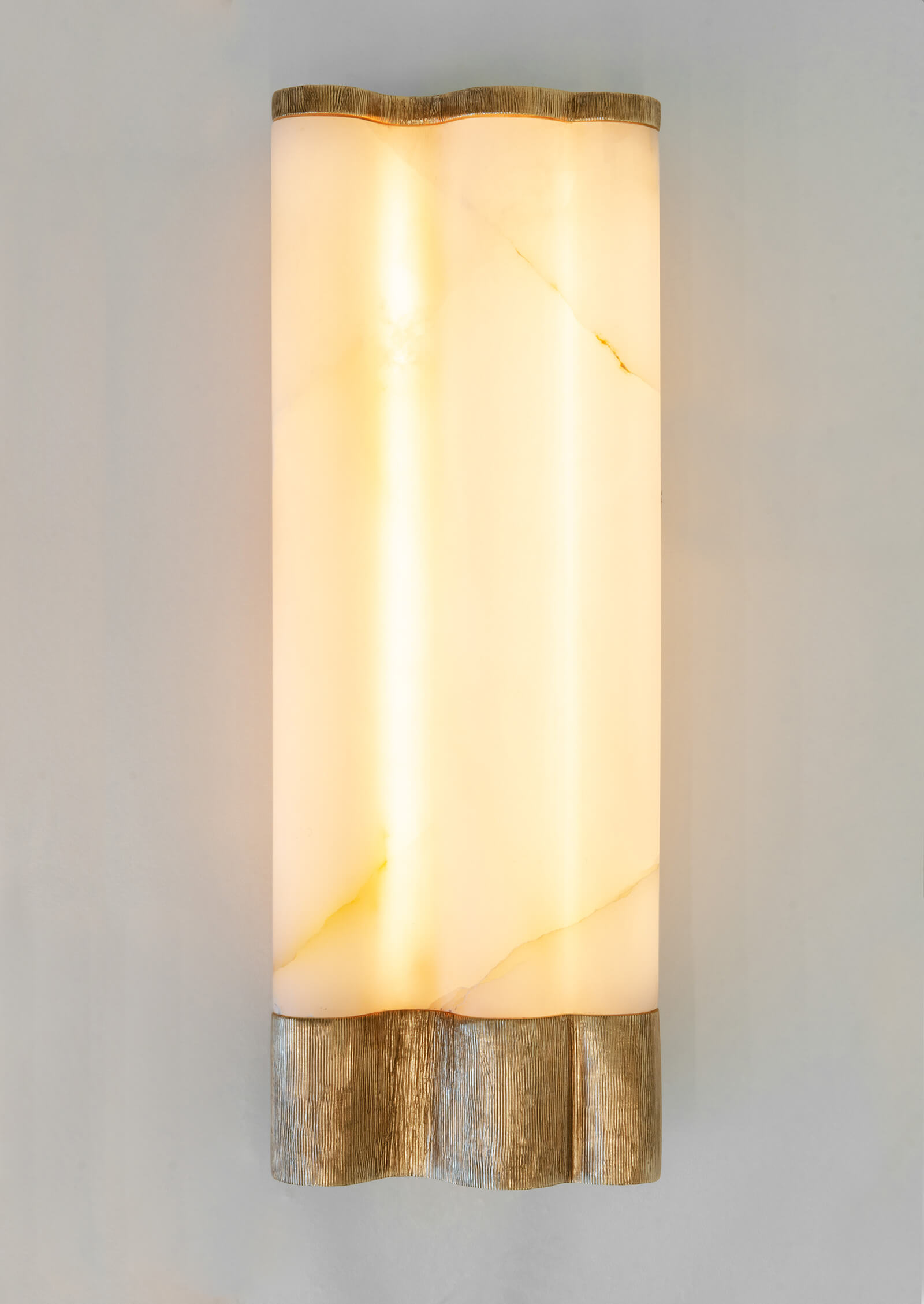
Achille Salvagni, ‘Bamboo’, 2016
COURTESY: Achille Salvagni
PAD is renowned for its eclecticism and visitors can expect to discover Picasso’s ceramics at Jean-François Cazeau, tribal arts at Galerie Flak and glassworks at Clara Scremini (all from Paris) besides historical, modern and contemporary design.
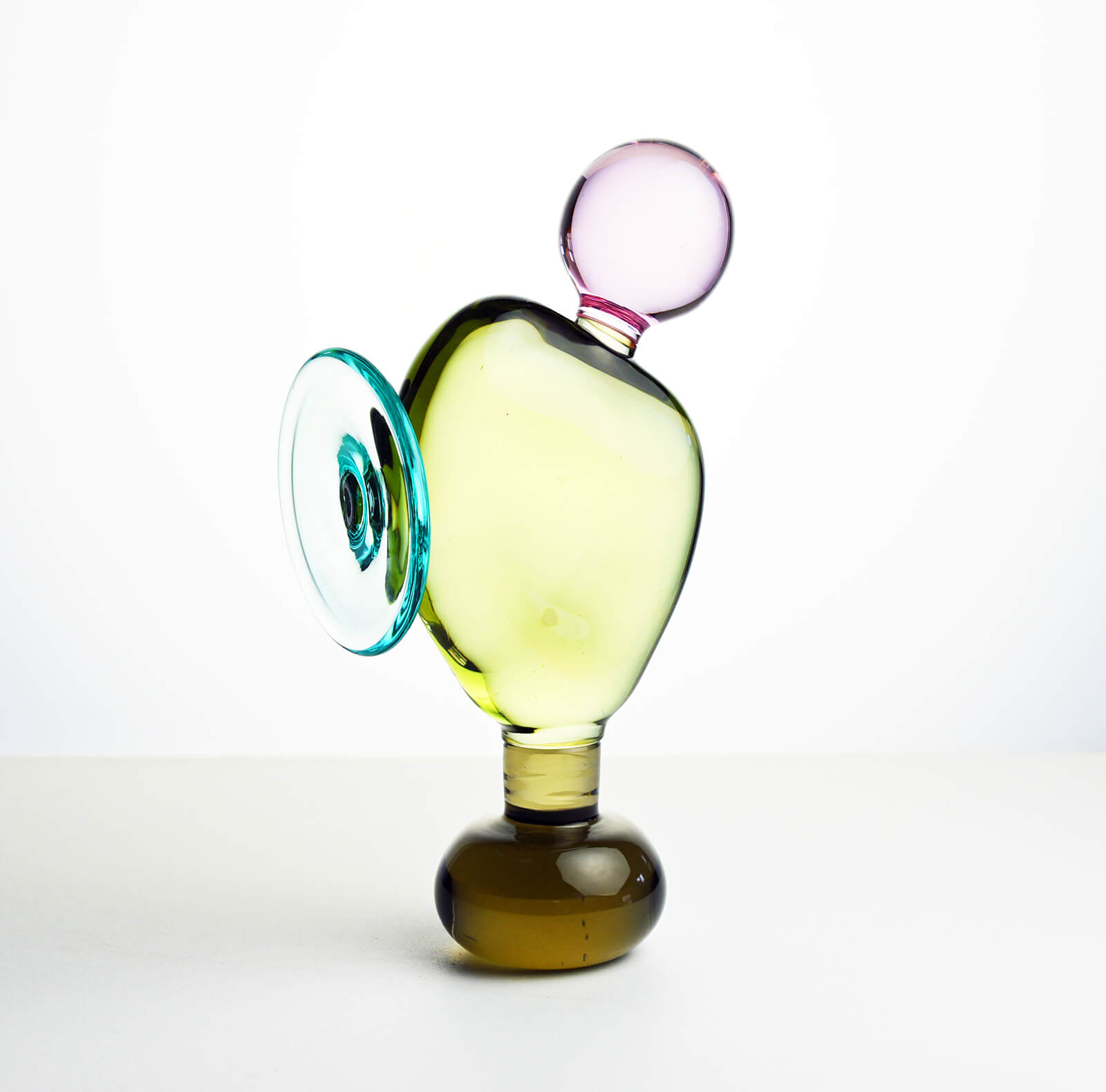
Anu Penttinen, ‘Colour Catcher No. 012’, 2021
COURTESY: Anu Penttinen & Clara Scremini
Much has evolved in Paris since PAD’s last edition in 2019. The Bourse de Commerce – Pinault Collection, which was renovated by Japanese architect Tadao Ando and showcases exhibitions from luxury goods billionaire François Pinault’s collection, opened near the Louvre last May.
Several international art galleries have inaugurated new spaces, from Gagosian’s third Parisian address on Rue de Castiglione near Place Vendôme to Chicago-based dealer Mariane Ibrahim’s outpost on Avenue Matignon. French gallerists such as Perrotin, Nathalie Obadia and Kamel Mennour have also expanded their presence in the city. All these developments have bolstered the standing of Paris as a major arts capital.
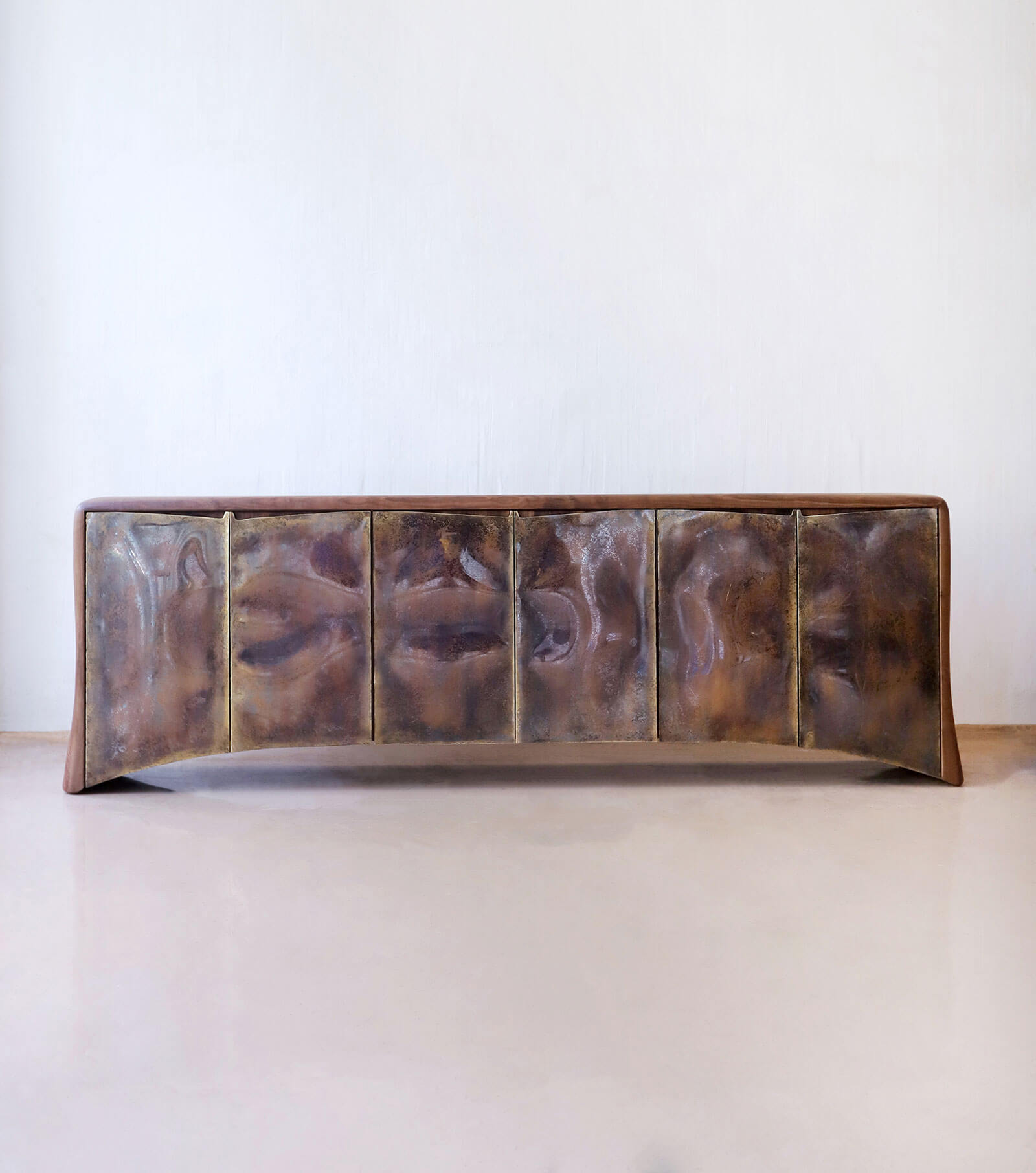
Valentin Loellmann, ‘Brass’ sideboard, 2021
COURTESY: Valentin Loellmann & Galerie Gosserez / PHOTOGRAPH: Jonas Loellmann
“When I was young, the centre of the art world was New York, then it was London and I believe that now it’s Paris,” Patrick Perrin, founder of PAD, says. Paris is undergoing a “period of renewal similar to that of the 1920s-1930s and 1980s”, believes Perrin, adding that the arrival of more international galleries is a “sign of a certain confidence”.
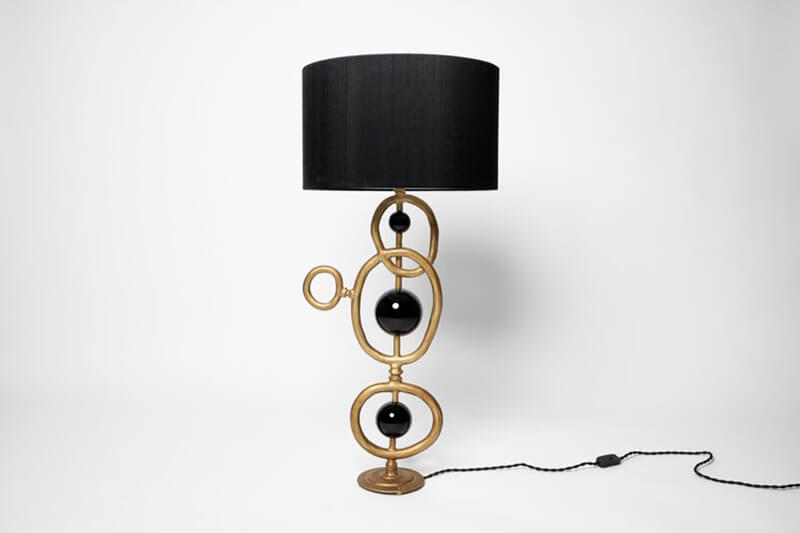
Romaine Barré, ‘Obsidian Bubbles Lamp’, 2020
COURTESY: Romaine Barré & Galerie Jean-Marc Lelouch
Inevitably, expectations are high for this edition of PAD. “For two years, there have been very few fairs and there’s a strong desire to rediscover design as things recommence,” Perrin notes. “People have changed their lifestyles, spending more time in their houses in the countryside, and want to improve the quality of their interiors, which contributes to the French art de vivre.”
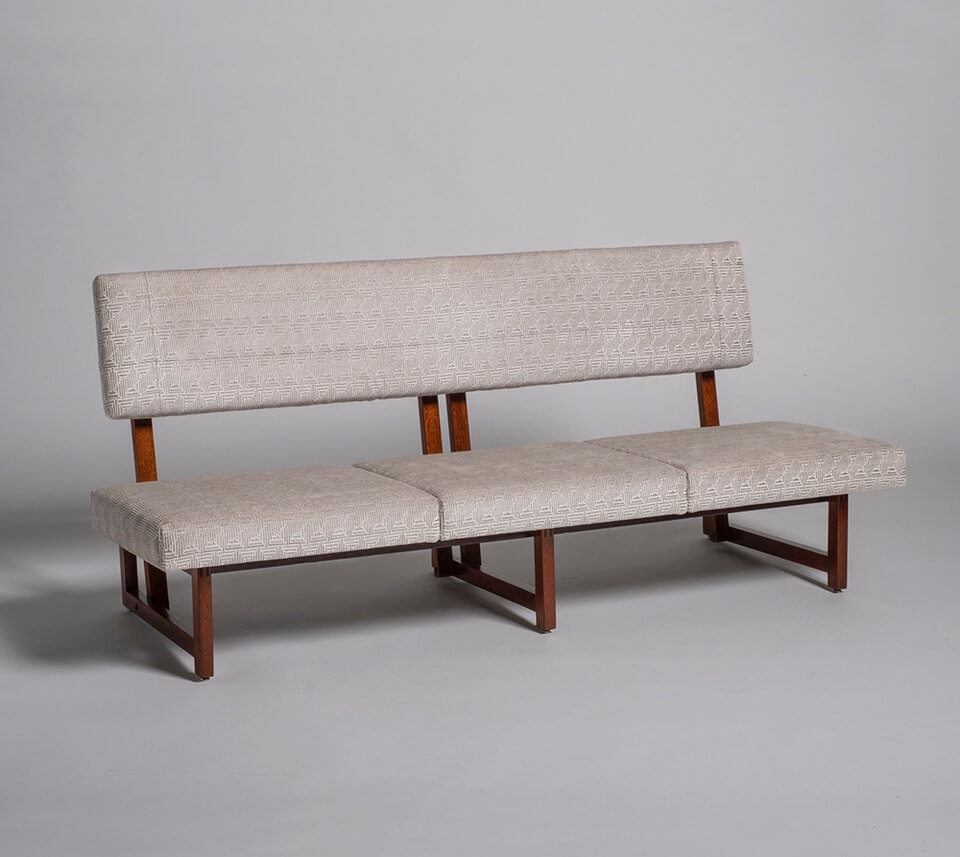
André Sornay, ‘Mahogany sofa’, circa 1955
COURTESY: Galerie Alain Marcelpoil
Could the Russian-Ukraine war impact on the collecting of design? “I don’t have the feeling that Russian collectors are among those collecting design,” Perrin replies. “Unlike the contemporary art market, design isn’t about financial investment, it’s about pleasure. If you buy a sofa from Galerie kreo, Carpenters Workshop Gallery or FUMI, it’s for something to sit down on. It’s not for money-laundering or to impress friends. Anybody who doesn’t really need anything could walk into PAD and come out with something.”
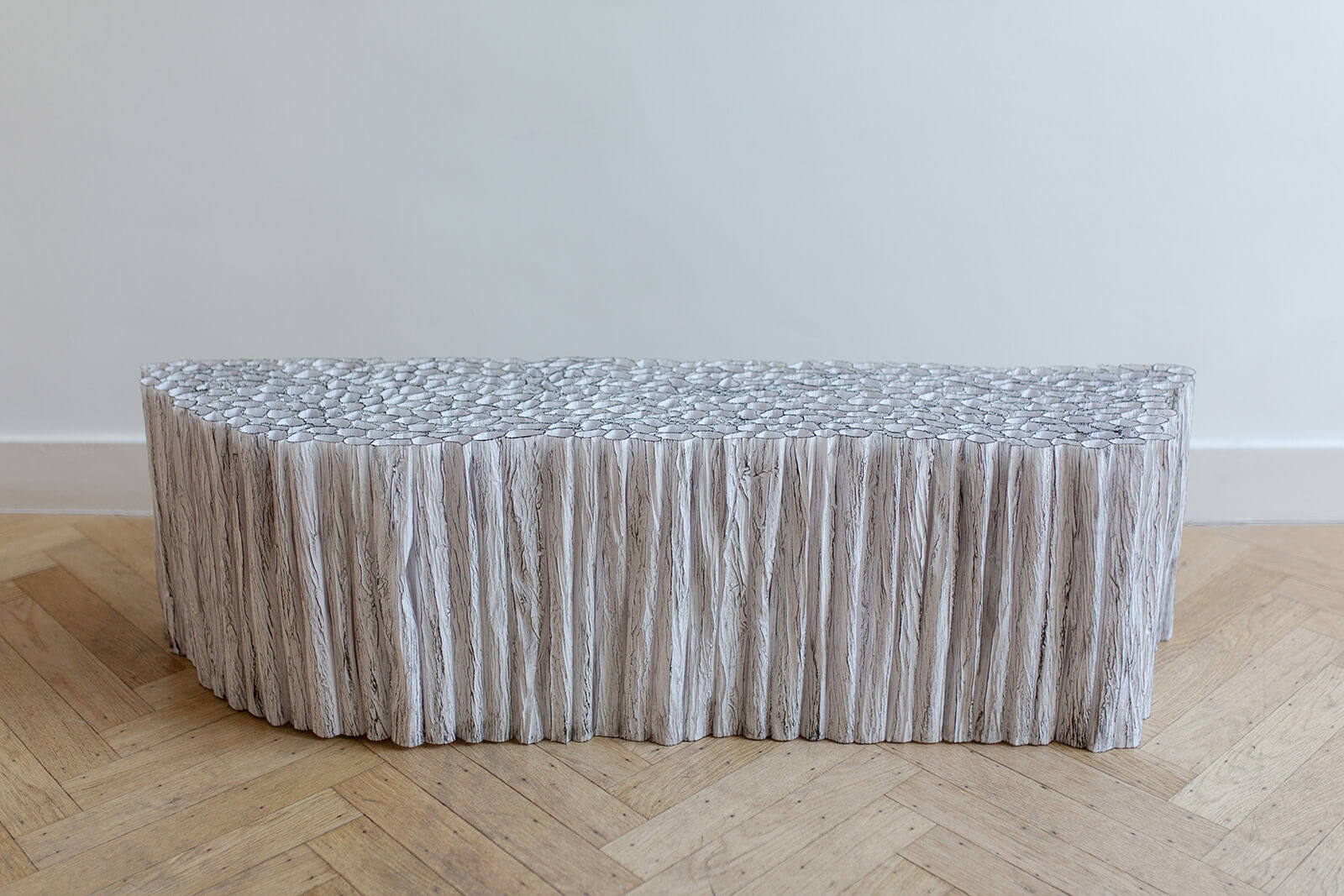
Pao Hui Kao, ‘Urushi Paper Pleats’ sideboard, 2021
COURTESY: Pao Hui Kao & Spazio Nobile
Perrin is equally unflustered by the news that Art Basel is launching the fair Paris+, by Art Basel in October in the Grand Palais Éphémère – a temporary structure being used whilst the Grand Palais undergoes renovation. “We share several clients and the arrival of the biggest modern and contemporary art fair implies that it’ll make Paris more attractive all year round.”
Contemporary design features strongly at this edition of PAD. Carpenters Workshop Gallery is dedicating its stand to a solo show by the young French artist Martin Laforêt, who graduated from Design Academy Eindhoven in 2015. “We’ve been working with Martin since he graduated and are proud to see him mature into an incredible designer,” gallery director Julien Lombrail says. “We felt fortunate to host his first solo exhibition [in London, in 2020] and can’t wait to share his new works at PAD Paris.”
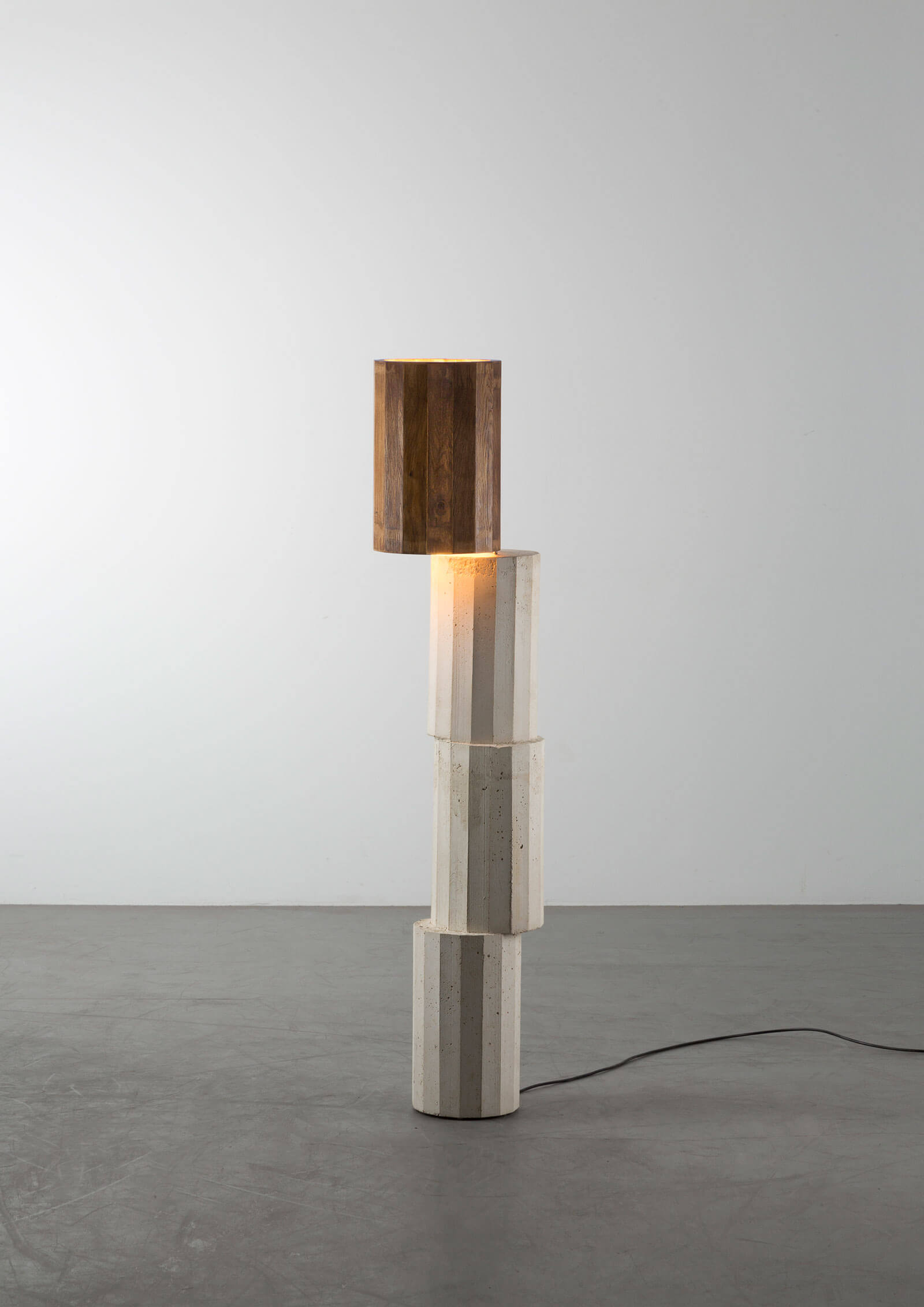
Martin Laforêt, ‘MCL2 B (Floor Lamp)’, 2019
COURTESY: Martin Laforêt & Carpenters Workshop Gallery
On display are Laforet’s pieces from several series exploring techniques of moulding concrete and assembling it with other materials in an experimental yet rigorous manner. “There’s always the idea of the positive and negative [between the juxtaposed materials] and of imbalance whilst retaining a simplicity in the forms,” says Laforet, who is loosely inspired by Arte Povera artist Giuseppe Penone, as well as British sculptor Tony Cragg. Exemplifying this quest to denote the impression of imbalance is the ‘MCL2 B (Floor Lamp)’ from 2019. Three concrete cylinders form the lampstand, at the top of which is an oak lampshade. Each ridged element is positioned at an oblique angle, giving the illusion of precariousness. Underscoring the different series is how Laforet seeks to unmask the role of the designer and give visibility to certain aspects of the creative process.
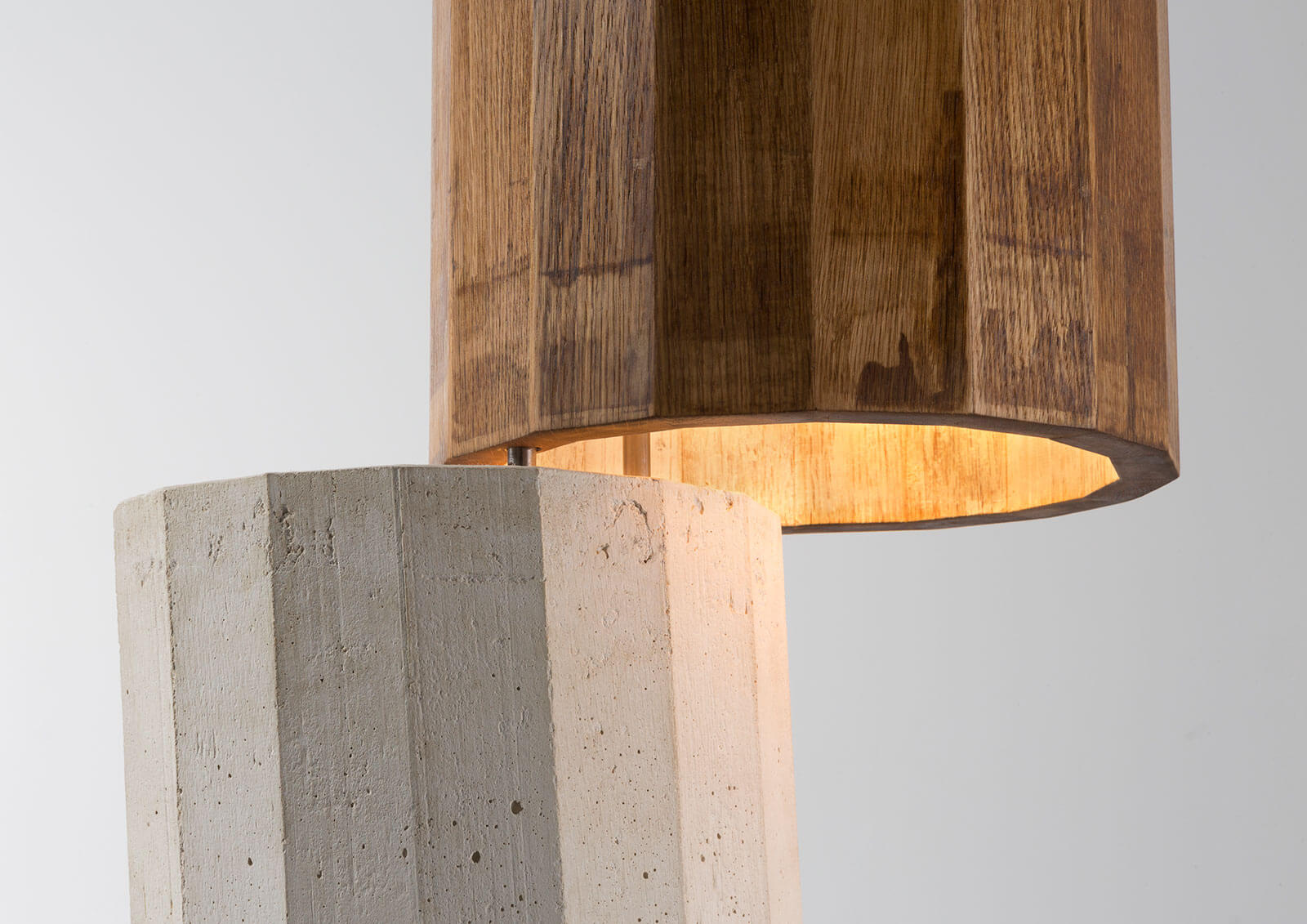
Martin Laforêt, ‘MCL2 B (Floor Lamp)’, 2019 (detail)
COURTESY: Martin Laforêt & Carpenters Workshop Gallery
Prowess in mastering bronze is visible on several stands. At Galerie Mougin is Caroline Corbeau’s ‘Diapson’ (2021) chest of drawers; at Galerie Dutko is Patrick Naggar’s elegant ‘Banc Nord-Sud’ (2016) bench resting on circles of contrasting bronze and at Galerie Negropontes you can find Erwan Boulloud’s ‘Atacama’ bronze coffee table (2020), its top vaguely reminiscent of a burnt landscape, with black steel interlocking legs.
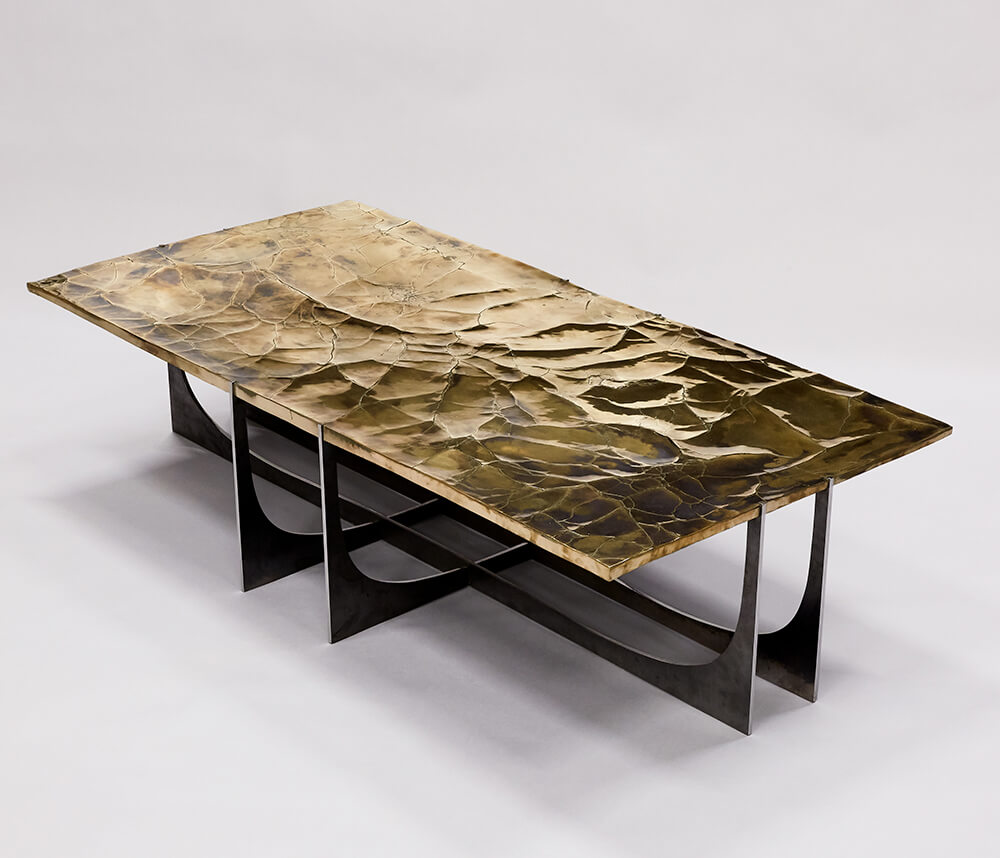
Erwan Boulloud, ‘Atacama’, 2020
COURTESY: Erwan Boulloud & Galerie Negropontes
In terms of lighting, discoveries include Hervé Wahlen’s spiralling sculpture ‘Torsion IV’ (2022) in brass, patinated bronze and LEDs at Maison Parisienne and Romain Barré’s ‘Obsidian Bubbles’ lamp (2020), featuring obsidian bubbles set amidst bronze, at Galerie Jean-Marc Lelouch.
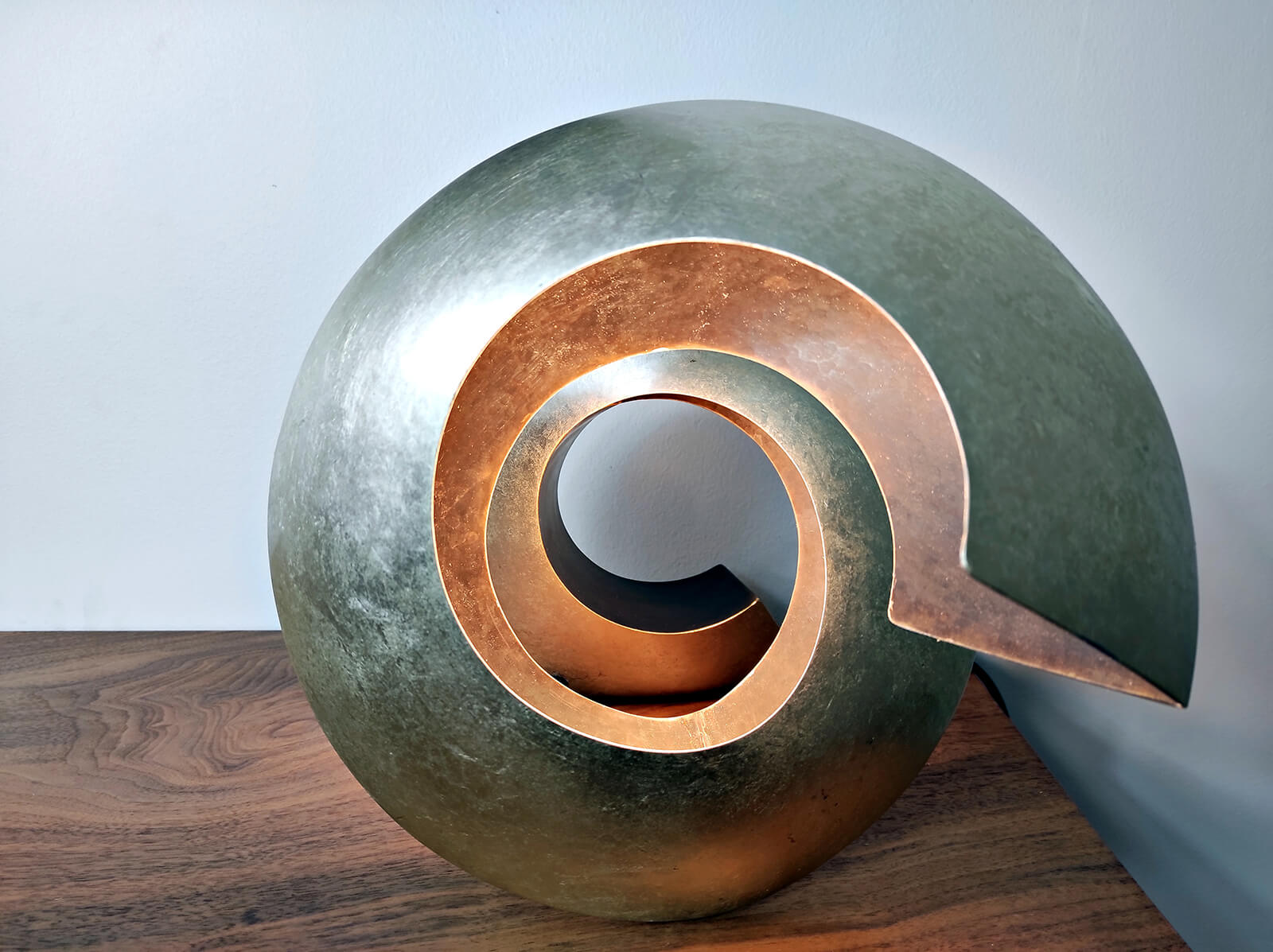
Hervé Wahlen, ‘Torsion IV’, 2022
COURTESY: Hervé Wahlen & Maison Parisienne
A perfect example of contemporary craftsmanship intersecting with technology is Mathias Bengtsson’s marble ‘Membrane Table’, on Maria Wettergren’s stand. The Stockholm-based designer conceived the piece with a software system that he had invented in order to simulate organic growth in nature. Following an earlier piece made in maple, he had this iteration in marble fabricated in Spain.
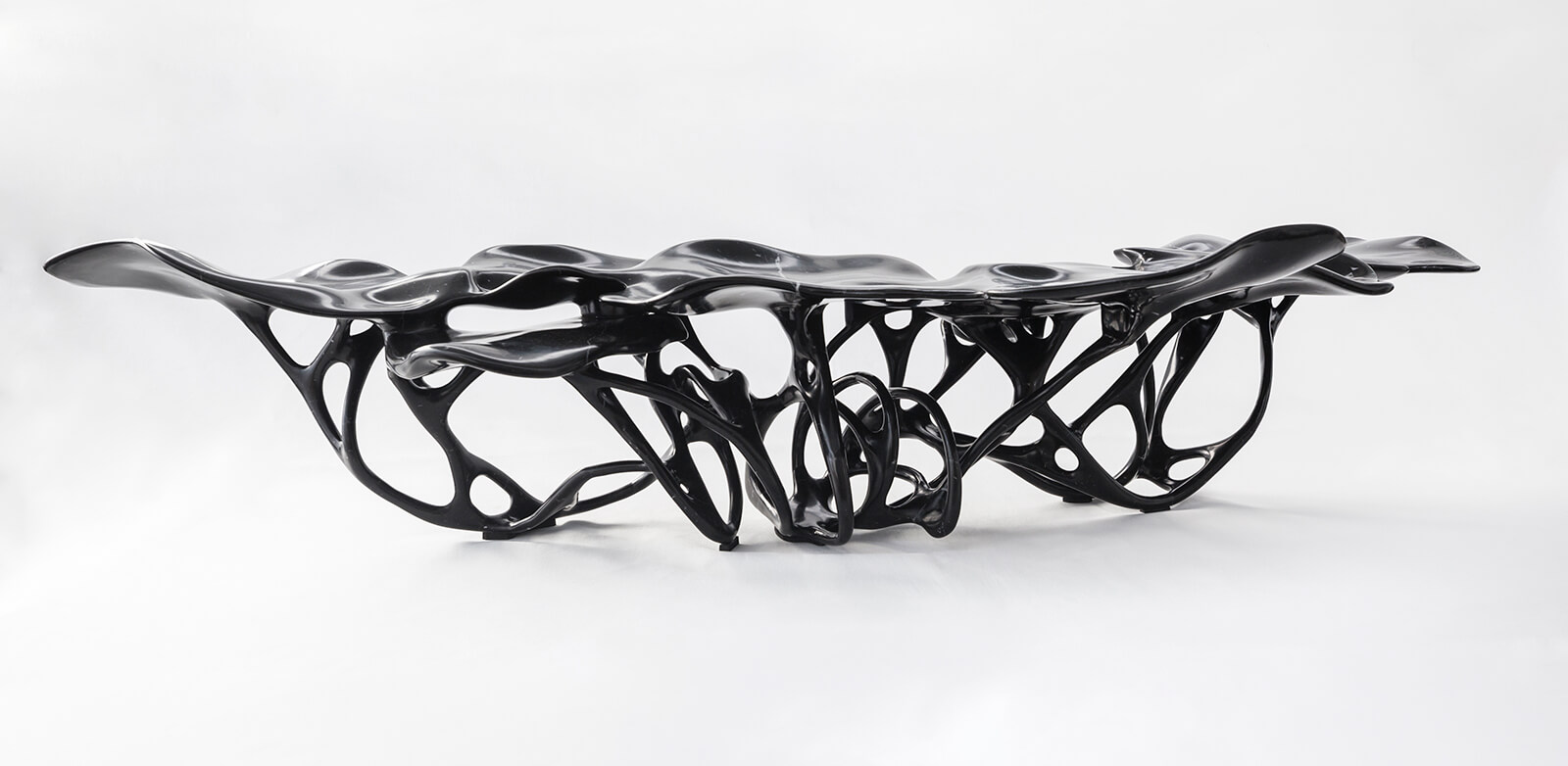
Mathias Bengtsson, ‘Membrane Table’, 2021
COURTESY: Mathias Bengtsson & Galerie Maria Wettergren / PHOTOGRAPH: Toni Catala / Madfaber
At Galerie Yves Gastou – which has been taken over by Victor Gastou following his father’s death – there is a table that illustrates a completely different approach with marble. Emmanuel Babled’s ‘Osmosi, complement #7’ console (2022) made from white Carrara marble has two blown-glass forms, which could be used as vases, inserted into the two extremities.
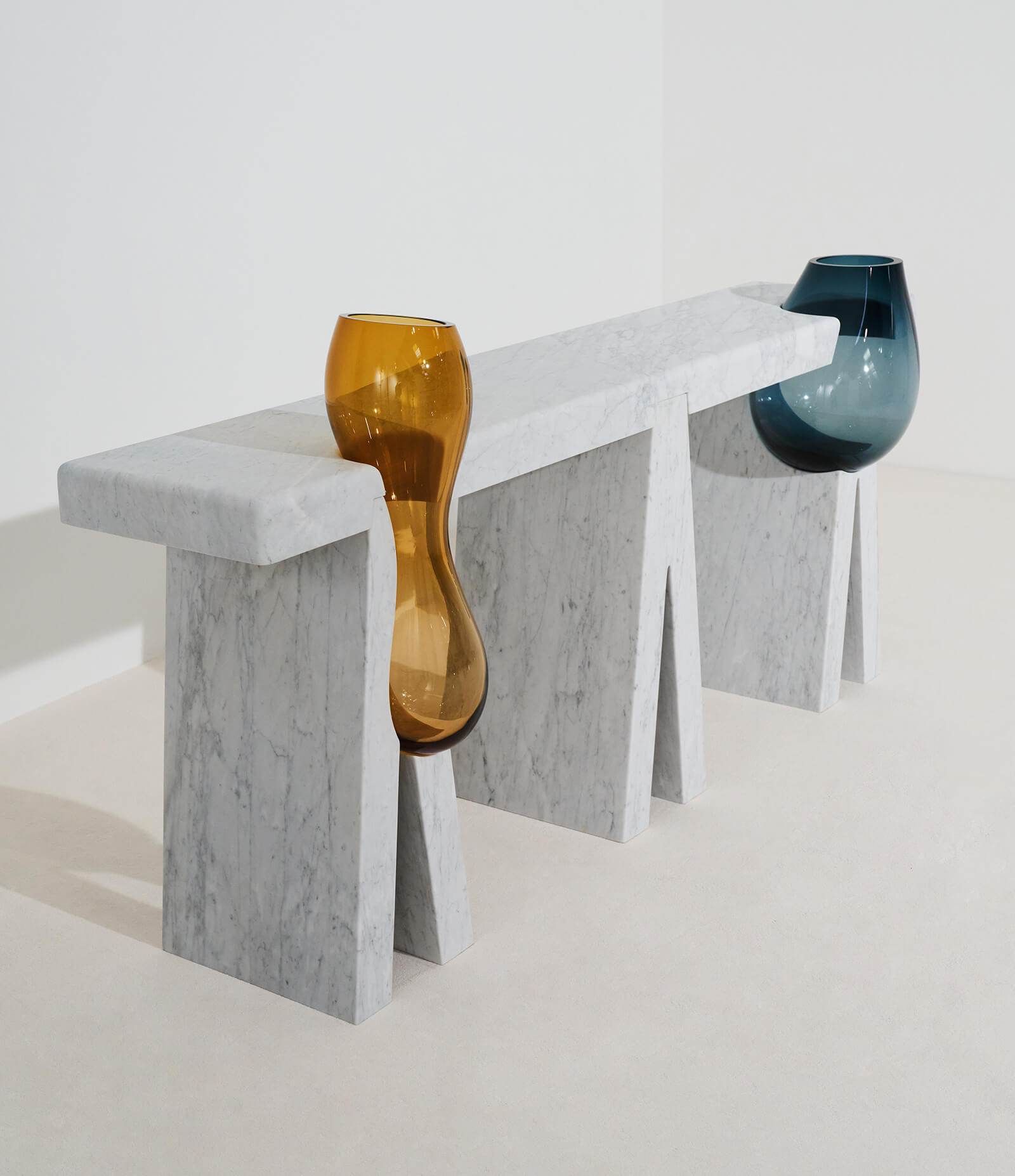
Emmanuel Babled, ‘Osmosic, complement #7’ console, 2022
COURTESY: Emmanuel Babled & Galerie Yves Gastou
Other pieces at PAD embrace new approaches to luxury, such as Ad Hoc’s ‘Roots Stool Gold’ (2021). Founded by Mexican design duo Juan José Nemer and Mauricio Álvarez, Ad Hoc has embellished the gold mohair and walnut stool with ixtle, a fibre made from the agave plant. The ixtle, wrapped around the soft fabric of the stool like a big brush, evokes the traditional craftsmanship of Mesoamerican ancestry.
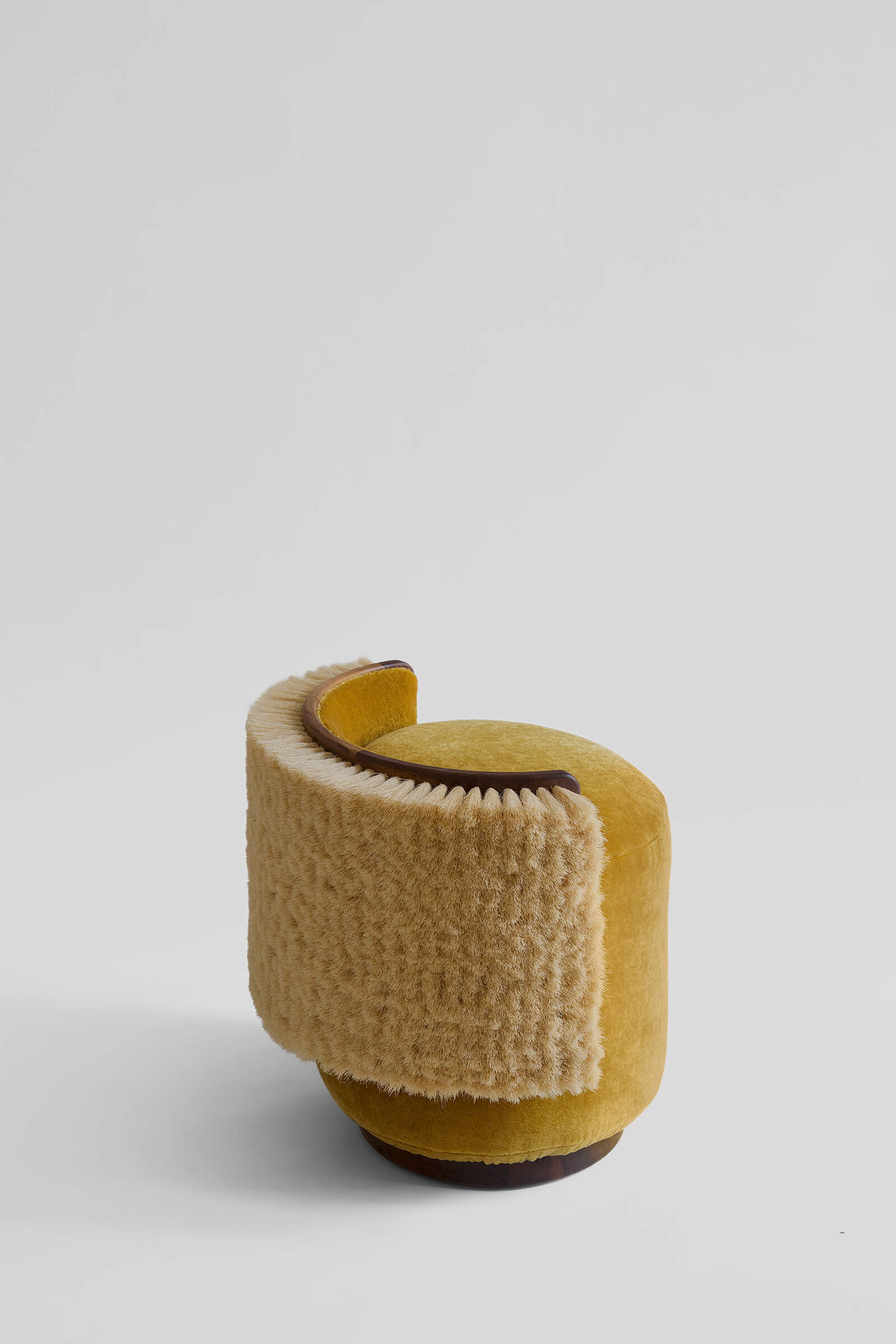
Ad Hoc, ‘ROOTS Stool Gold’, 2021
COURTESY: Ad Hoc & ammann // gallery
“Ad Hoc has embellished the gold velvet and walnut stool with ixtle, a fibre made from the agave plant”
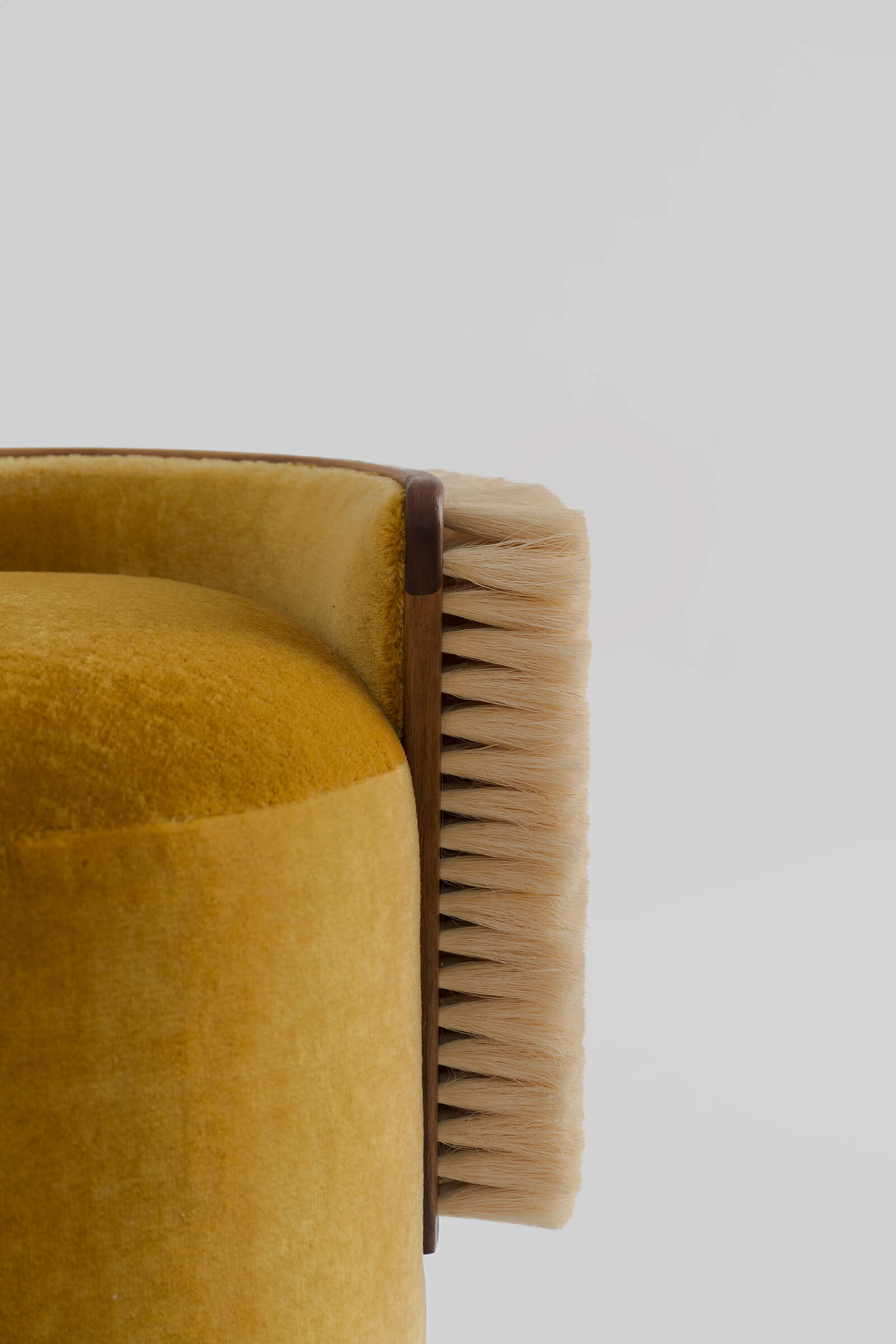
Ad Hoc, ‘ROOTS Stool Gold’, 2021 (detail)
COURTESY: Ad Hoc & ammann // gallery
“The ixtle, wrapped around the soft fabric of the stool like a big brush, evokes the craftsmanship of Mesoamerican ancestry”
The glass craftsmanship at Clara Scremini is always a treat at PAD. Championing glassworks for nearly four decades, Scremini is unveiling Czech artist Lucie Švitorková’s ‘LINEA’ (2022) at this edition – a red sculpture carved with precise lines, and Finnish artist Anu Penttinen’s ‘Colour Catcher No. 012’ (2021), an abstract sculpture made from variously coloured glass.
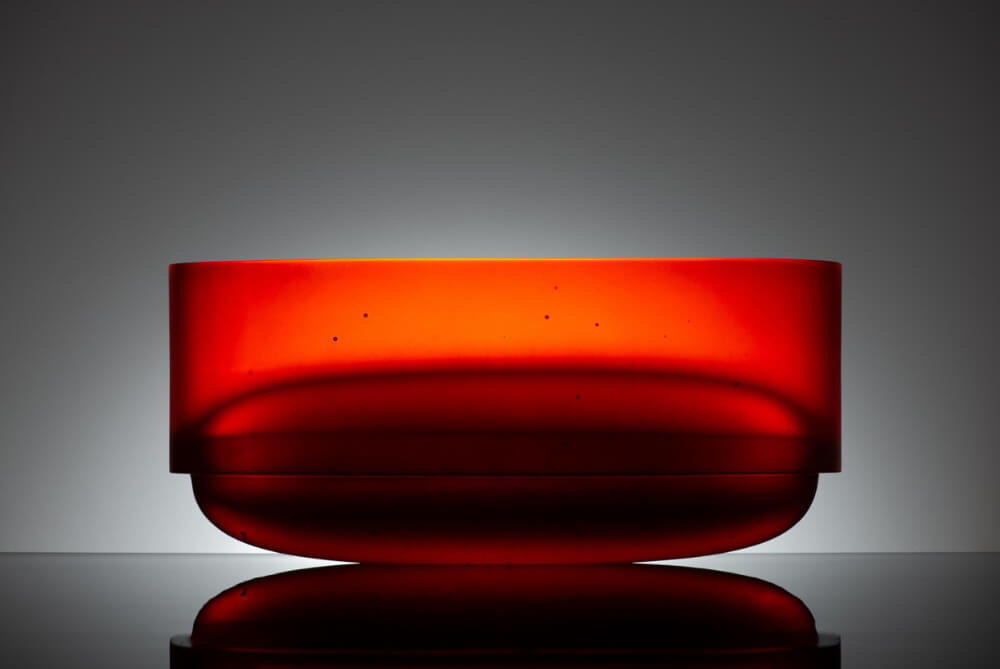
Lucie Švitorková, ‘LINEA’, 2022
COURTESY: Lucie Svitorkova & Clara Scremini
Among the modern pieces on view is André Sornay’s beautifully proportioned ‘Mahogany sofa’ (circa 1955) at Galerie Alain Marcelpoil. Meanwhile, Pierre Paulin’s rare ‘Floor lamp’, circa 1970, made from a tall red cylinder and white-panelled shade, is at Jousse Entreprise, another PAD stalwart.
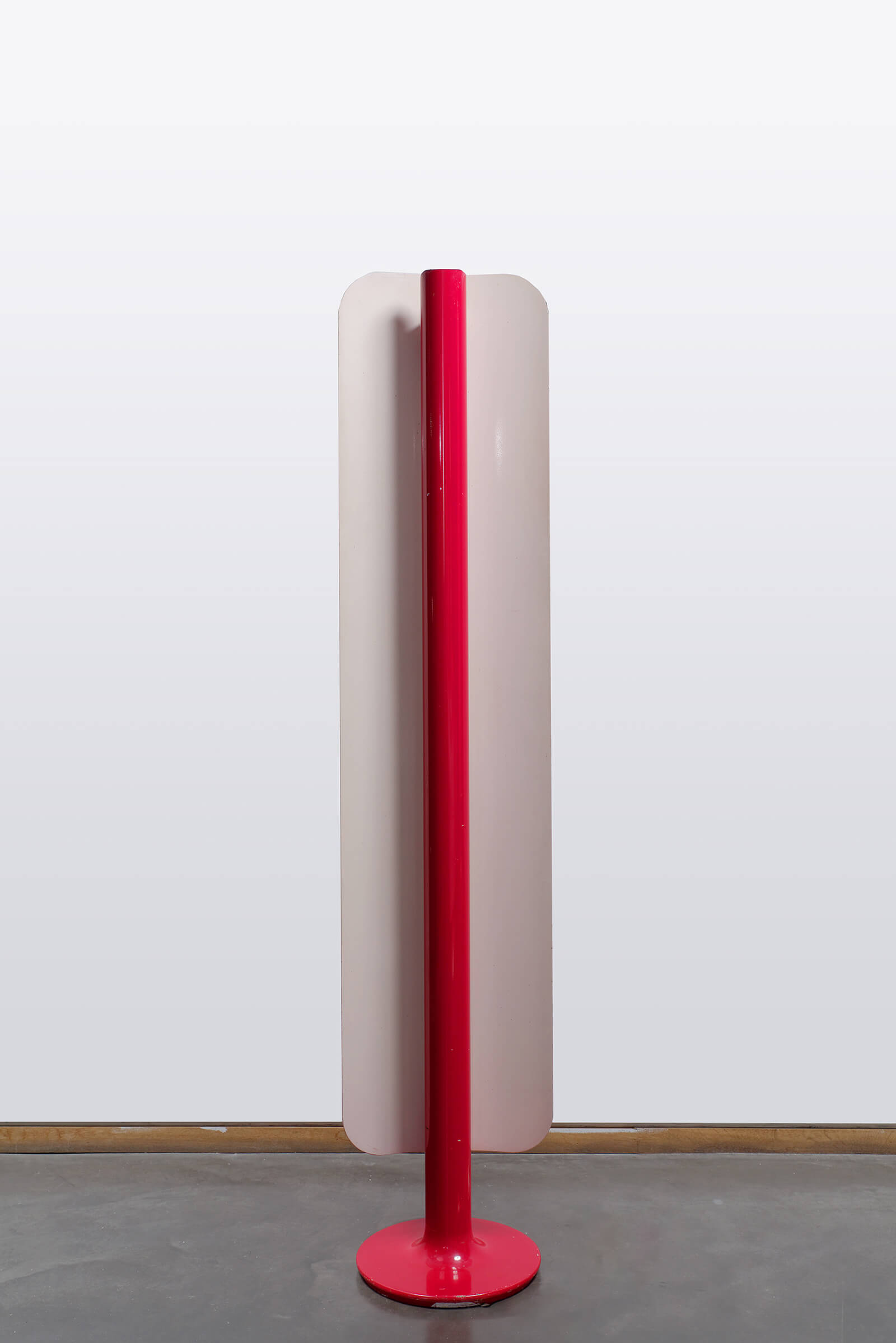
Pierre Paulin, ‘Floor lamp’, circa 1970
COURTESY: Pierre Paulin & Jousse Entreprise / PHOTOGRAPH: © Adrien Dirand
The “functional artworks” at Philippe Gravier by acclaimed French artist Bernar Venet – known for his large-scale public sculptures of steel “indeterminate lines” – are also intriguing. “Bernar Venet’s functional artworks, which he considers furniture, are barely known so I proposed a collaboration,” Gravier says. On display are ‘Arcs Lumineux’ (2022), essentially arched lighting mural sculptures, and a silk carpet evocative of Venet’s curvilinear language.
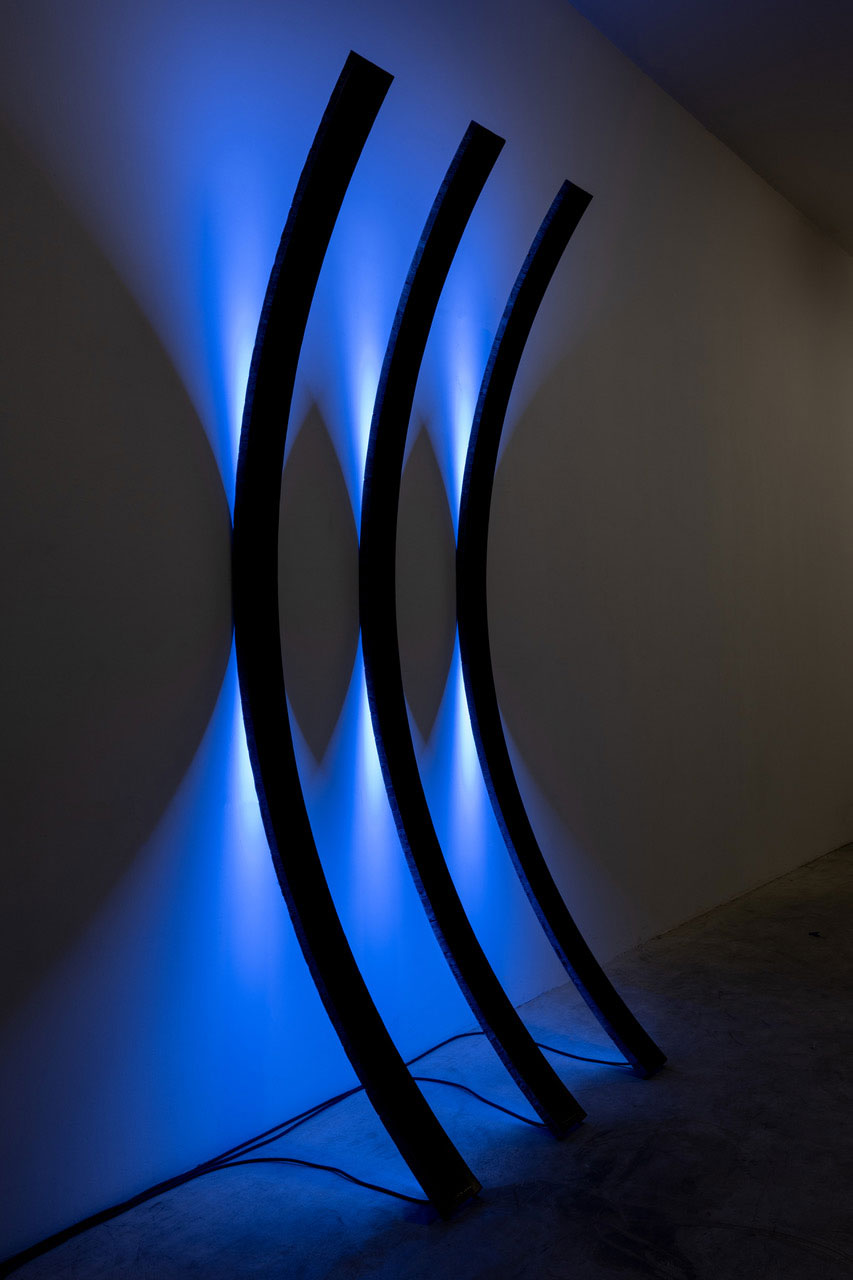
Bernard Venet, ‘Arcs Lumineux’, 2022
COURTESY: Bernard Venet & Galerie Philippe Gravier / PHOTOGRAPH: © Jerome Cavaliere




